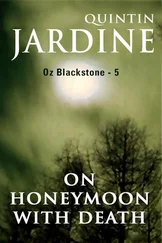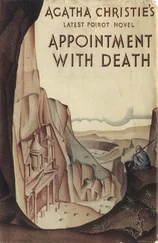John Donne - Devotions Upon Emergent Occasions; Together with Death's Duel
Здесь есть возможность читать онлайн «John Donne - Devotions Upon Emergent Occasions; Together with Death's Duel» — ознакомительный отрывок электронной книги совершенно бесплатно, а после прочтения отрывка купить полную версию. В некоторых случаях можно слушать аудио, скачать через торрент в формате fb2 и присутствует краткое содержание. Издательство: Иностранный паблик, Жанр: foreign_prose, foreign_religion, Философия, foreign_psychology, foreign_antique, на английском языке. Описание произведения, (предисловие) а так же отзывы посетителей доступны на портале библиотеки ЛибКат.
- Название:Devotions Upon Emergent Occasions; Together with Death's Duel
- Автор:
- Издательство:Иностранный паблик
- Жанр:
- Год:неизвестен
- ISBN:нет данных
- Рейтинг книги:4 / 5. Голосов: 1
-
Избранное:Добавить в избранное
- Отзывы:
-
Ваша оценка:
- 80
- 1
- 2
- 3
- 4
- 5
Devotions Upon Emergent Occasions; Together with Death's Duel: краткое содержание, описание и аннотация
Предлагаем к чтению аннотацию, описание, краткое содержание или предисловие (зависит от того, что написал сам автор книги «Devotions Upon Emergent Occasions; Together with Death's Duel»). Если вы не нашли необходимую информацию о книге — напишите в комментариях, мы постараемся отыскать её.
Devotions Upon Emergent Occasions; Together with Death's Duel — читать онлайн ознакомительный отрывок
Ниже представлен текст книги, разбитый по страницам. Система сохранения места последней прочитанной страницы, позволяет с удобством читать онлайн бесплатно книгу «Devotions Upon Emergent Occasions; Together with Death's Duel», без необходимости каждый раз заново искать на чём Вы остановились. Поставьте закладку, и сможете в любой момент перейти на страницу, на которой закончили чтение.
Интервал:
Закладка:
Immediately after his admission into his Deanery the Vicarage of St. Dunstan in the West, London, fell to him by the death of Dr. White, the advowson of it having been given to him long before by his honourable friend Richard Earl of Dorset, then the patron, and confirmed by his brother the late deceased Edward, both of them men of much honour.
By these, and another ecclesiastical endowment which fell to him about the same time, given to him formerly by the Earl of Kent, he was enabled to become charitable to the poor, and kind to his friends, and to make such provision for his children, that they were not left scandalous as relating to their or his profession and quality.
The next Parliament, which was within that present year, he was chosen Prolocutor to the Convocation, and about that time was appointed by his Majesty, his most gracious master, to preach very many occasional sermons, as at St. Paul's Cross, and other places. All which employments he performed to the admiration of the representative body of the whole Clergy of this nation.
He was once, and but once, clouded with the King's displeasure, and it was about this time; which was occasioned by some malicious whisperer, who had told his Majesty that Dr. Donne had put on the general humour of the pulpits, and was become busy in insinuating a fear of the King's inclining to popery, and a dislike of his government; and particularly for the King's then turning the evening lectures into catechising, and expounding the Prayer of our Lord, and of the Belief, and Commandments. His Majesty was the more inclinable to believe this, for that a person of nobility and great note, betwixt whom and Dr. Donne there had been a great friendship, was at this very time discarded the court—I shall forbear his name, unless I had a fairer occasion—and justly committed to prison; which begot many rumours in the common people, who in this nation think they are not wise unless they be busy about what they understand not, and especially about religion.
The King received this news with so much discontent and restlessness that he would not suffer the sun to set and leave him under this doubt; but sent for Dr. Donne, and required his answer to the accusation; which was so clear and satisfactory that the King said, "he was right glad he rested no longer under the suspicion." When the King had said this, Dr. Donne kneeled down, and thanked his Majesty, and protested his answer was faithful, and free from all collusion, and therefore "desired that he might not rise till, as in like cases, he always had from God, so he might have from his Majesty, some assurance that he stood clear and fair in his opinion." At which the King raised him from his knees with his own hands, and "protested he believed him; and that he knew he was an honest man, and doubted not but that he loved him truly." And, having thus dismissed him, he called some Lords of his Council into his chamber, and said with much earnestness, "My Doctor is an honest man; and, my Lords, I was never better satisfied with an answer than he hath now made me; and I always rejoice when I think that by my means he became a Divine."
He was made Dean in the fiftieth year of his age, and in his fifty-fourth year a dangerous sickness seized him, which inclined him to a consumption; but God, as Job thankfully acknowledged, preserved his spirit, and kept his intellectuals as clear and perfect as when that sickness first seized his body; but it continued long, and threatened him with death, which he dreaded not.
Within a few days his distempers abated; and as his strength increased so did his thankfulness to Almighty God, testified in his most excellent "Book of Devotions," which he published at his recovery; in which the reader may see the most secret thoughts that then possessed his soul, paraphrased and made public: a book that may not unfitly be called a Sacred Picture of Spiritual Ecstasies, occasioned and applicable to the emergencies of that sickness; which book, being a composition of meditations, disquisitions, and prayers, he writ on his sick-bed; herein imitating the holy Patriarchs, who were wont to build their altars in that place where they had received their blessings.
This sickness brought him so near to the gates of death, and he saw the grave so ready to devour him, that he would often say his recovery was supernatural: but that God that then restored his health continued it to him till the fifty-ninth year of his life: and then, in August 1630, being with his eldest daughter, Mrs. Harvey, at Abury Hatch, in Essex, he there fell into a fever, which, with the help of his constant infirmity—vapours from the spleen—hastened him into so visible a consumption that his beholders might say, as St. Paul of himself, "He dies daily;" and he might say with Job, "My welfare passeth away as a cloud, the days of my affliction have taken hold of me, and weary nights are appointed for me."
Reader, this sickness continued long, not only weakening, but wearying him so much, that my desire is he may now take some rest; and that before I speak of his death thou wilt not think it an impertinent digression to look back with me upon some observations of his life, which, whilst a gentle slumber gives rest to his spirits, may, I hope, not unfitly, exercise thy consideration.
His marriage was the remarkable error of his life; an error which, though he had a wit able and very apt to maintain paradoxes, yet he was very far from justifying it: and though his wife's competent years, and other reasons, might be justly urged to moderate severe censures, yet he would occasionally condemn himself for it: and doubtless it had been attended with an heavy repentance, if God had not blessed them with so mutual and cordial affections, as in the midst of their sufferings made their bread of sorrow taste more pleasantly than the banquets of dull and low-spirited people.[Pg xxviii]
The recreations of his youth were poetry, in which he was so happy as if nature and all her varieties had been made only to exercise his sharp wit and high fancy; and in those pieces which were facetiously composed and carelessly scattered,—most of them being written before the twentieth year of his age—it may appear by his choice metaphors that both nature and all the arts joined to assist him with their utmost skill.
It is a truth, that in his penitential years, viewing some of those pieces that had been loosely—God knows, too loosely—scattered in his youth, he wished they had been abortive, or so short-lived that his own eyes had witnessed their funerals; but, though he was no friend to them, he was not so fallen out with heavenly poetry, as to forsake that; no, not in his declining age; witnessed then by many divine sonnets, and other high, holy, and harmonious composures. Yea, even on his former sick-bed he wrote this heavenly hymn, expressing the great joy that then possessed his soul, in the assurance of God's favour to him when he composed it:—
"Wilt Thou forgive that sin where I begun,
Which was my sin, though it were done before?
Wilt Thou forgive that sin through which I run,
And do run still, though still I do deplore?
When Thou hast done, Thou hast not done,
For I have more.
"Wilt Thou forgive that sin, which I have won
Others to sin, and made my sin their door?
Wilt Thou forgive that sin which I did shun
A year or two:—but wallow'd in a score?
When Thou hast done, Thou hast not done,
For I have more.
"I have a sin of fear, that when I've spun
My last thread, I shall perish on the shore;
But swear by Thyself, that at my death Thy Son
Shall shine as He shines now, and heretofore;
And having done that, Thou hast done,
I fear no more."
Интервал:
Закладка:
Похожие книги на «Devotions Upon Emergent Occasions; Together with Death's Duel»
Представляем Вашему вниманию похожие книги на «Devotions Upon Emergent Occasions; Together with Death's Duel» списком для выбора. Мы отобрали схожую по названию и смыслу литературу в надежде предоставить читателям больше вариантов отыскать новые, интересные, ещё непрочитанные произведения.
Обсуждение, отзывы о книге «Devotions Upon Emergent Occasions; Together with Death's Duel» и просто собственные мнения читателей. Оставьте ваши комментарии, напишите, что Вы думаете о произведении, его смысле или главных героях. Укажите что конкретно понравилось, а что нет, и почему Вы так считаете.


![Элизабет Ленхард - Свидание со смертью[Date With Death]](/books/79651/elizabet-lenhard-svidanie-so-smertyu-date-with-dea-thumb.webp)









